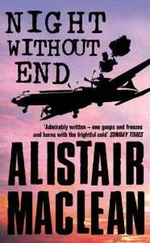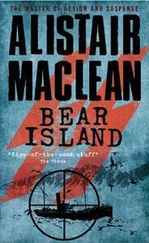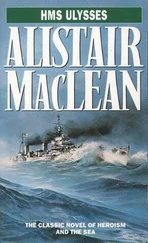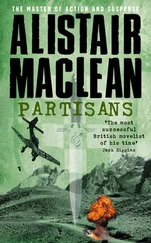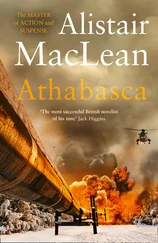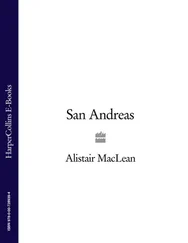Alistair MacLean - Breakheart Pass
Здесь есть возможность читать онлайн «Alistair MacLean - Breakheart Pass» — ознакомительный отрывок электронной книги совершенно бесплатно, а после прочтения отрывка купить полную версию. В некоторых случаях можно слушать аудио, скачать через торрент в формате fb2 и присутствует краткое содержание. Жанр: Старинная литература, на английском языке. Описание произведения, (предисловие) а так же отзывы посетителей доступны на портале библиотеки ЛибКат.
- Название:Breakheart Pass
- Автор:
- Жанр:
- Год:неизвестен
- ISBN:нет данных
- Рейтинг книги:5 / 5. Голосов: 1
-
Избранное:Добавить в избранное
- Отзывы:
-
Ваша оценка:
- 100
- 1
- 2
- 3
- 4
- 5
Breakheart Pass: краткое содержание, описание и аннотация
Предлагаем к чтению аннотацию, описание, краткое содержание или предисловие (зависит от того, что написал сам автор книги «Breakheart Pass»). Если вы не нашли необходимую информацию о книге — напишите в комментариях, мы постараемся отыскать её.
Breakheart Pass — читать онлайн ознакомительный отрывок
Ниже представлен текст книги, разбитый по страницам. Система сохранения места последней прочитанной страницы, позволяет с удобством читать онлайн бесплатно книгу «Breakheart Pass», без необходимости каждый раз заново искать на чём Вы остановились. Поставьте закладку, и сможете в любой момент перейти на страницу, на которой закончили чтение.
Интервал:
Закладка:
Architecturally, the Fort itself had no claims to originality. Built years before the completion of the Union Pacific Railway in 1869, it had to depend entirely on local building materials, and the plentiful stands of conifers provided unlimited supplies of that. The wooden stockade was built in the customary form of a hollow square with a boardwalk, about four feet from the top of the stakes, running the entire length of the inside perimeter. The heavy gate, facing both railroad and the river which wound down the valley, lay to the south; immediately inside the gate there was, to the right, the guard-house and to the left the store for weapons, ammunition and explosives. The entire eastern side of the compound was given over to stables. To the western side were the troops' quarters and cookhouse; the northern side was given over to officers' quarters, administrative and telegraph offices, sick bay and some spare accommodation for the invariably weary travellers who made Fort Humboldt a port of call with a not surprising frequency; it was a long long way from any other place.
Approaching the Fort from the west – up valley – were a group of weary travellers who were clearly looking forward very keenly to whatever the Fort might offer them in the way of shelter and hospitality. They were Indians, wrapped to the ears in an unavailing attempt to protect themselves from the biting cold and the thinly falling snow. Tired, very tired, they looked, but not as exhausted as their horses, who were literally trudging through the fetlock-deep snow. Of them all, only their leader, an unusually pale-faced and strikingly handsome Indian, seemed unweary. He sat very erect in the saddle. But then, the chief of the Paiutes always did.
He led his men through the open and unguarded doorway, raised his hand in a gesture of dismissal and headed across the compound, bringing up at a wooden hut with, above the door, the legend COMMANDANT. The Indian dismounted, climbed the few steps and entered, closing the door quickly behind him to keep out the swirling snow.
Sepp Calhoun was seated in Colonel Fairchild's desk armchair, his feet on the Colonel's desk, one of the Colonel's cheroots in one hand and a glass of the Colonel's whisky in the other. He looked up, swung his feet to the floor and rose, a most unusual gesture of respect on the part of Sepp Calhoun, who customarily showed no respect towards anyone. But then, people did not show disrespect to this particular Indian. Not twice.
Calhoun said: 'Welcome home, White Hand. You made fast time.'
'In weather such as this the wise man does not linger.'
'All went well? The line to San Francisco–'
'Is cut.' Imperiously, almost contemptuously. White Hand waved away the proffered bottle of whisky. 'We destroyed the bridge over the Anitoba gorge.'
'You have done well, White Hand. You and your men. How much time do we have?'
'Before the soldiers from the west could reach here?'
'Yes. Not that there's any reason to assume that they think that there is anything wrong in Fort Humboldt and will be coming here anyway. But chances we cannot take.'
'The stakes are high, Sepp Calhoun.' He thought briefly. 'Three days. Not less.'
'More than enough. The train arrives tomorrow between noon and sundown.'
'The soldiers on the train ?'
'No word yet.' Calhoun hesitated, then cleared his throat apologetically. 'It would be as well, White Hand, if you and your braves have some hours of rest. You may need to ride again before dark.'
There was silence during which White Hand regarded a highly uncomfortable Calhoun with total impassivity, then he said: 'There are times, Calhoun, when White Hand questions your judgment. We had an agreement, you remember, about capturing this fort. You and your friends were to come here in the hours of darkness and seek lodging for the night. You would be invited to spend the night, for you are white men and the night was full of snow. So much came true. Then you were to kill the night guards, open the gates, let us in and fall upon the soldiers in their bunks.'
Calhoun reached for his bottle of bourbon.
'It was a wild night. White Hand. We could not see well. The night, as you say, was full of snow and there was a great storm blowing. We thought–'
'The storm was in your minds and the snow came from that bottle of fire-water. I could smell it. So two of the guards they did not kill and there was time for a warning. Not enough time, Calhoun, but enough that fifteen of my best men lie dead. Fire-water! Bourbon! And the white men are better than the red!'
'Now look. White Hand. You must understand–'
'I understand everything. I understand that you care only for yourself, your friends who are all bad men, but not for the Paiutes. Then we ride a night and a day to destroy the Anitoba bridge. This, too, we did. And now you ask us to ride again.'
Calhoun was at his most nervously soothing. 'Only perhaps. White Hand. Those troops must be prevented from arriving here. You know that.'
'I may lose more men, it is sure that I will lose more men. I may lose many more men. But not for you, Calhoun, not for your evil bourbon, but for what they have done to my people the army of the white men are my enemies and will be while White Hand lives. But they, too, are brave and skilful fighters. And if they find out that it is White Hand and the Paiutes who have attacked them they will never rest until they have hunted down and destroyed each last one of us. I say the price is too high, Sepp Calhoun.'
'And if there is no white man left to tell what happened?' Calhoun let this thought take hold, then went on softly, persuasively: 'The rewards are even higher.'
After a long pause. White Hand nodded several times. 'The rewards are even higher.'
Fifteen minutes after the troop train had embarked on its laborious crawl up Hangman's Pass, Marica stood gazing through the day compartment window, oblivious both of the six men seated behind her and the icy chill of glass against which her forehead rested. She said to no one in particular: 'What a fantastic view!'
She could hardly be faulted for her comment. The blizzard-like squall had passed away and from where she stood she could see the track curving round and downwards for the space of almost two miles as it followed the breathtaking contours of the conifer-lined white valley until it reached the spidery bridge spanning the gorge at the foot of the valley. As was so often the case after snow had ceased to fall, everything could be seen with preternatural clarity.
Claremont was uninterested in the view; he had more pressing and disturbing matters on his mind. He said: 'Made any progress with your enquiries. Marshal?'
'No, sir.' Pearce wasn't demonstrably unhappy, because it wasn't in his nature either to feel or express such an emotion, but he certainly couldn't have been described as ebullient. 'Nobody knows anything, nobody's seen anything, nobody did anything, nobody heard anything and nobody as much as suspects anybody else. No, sir, you can take it that I haven't made any progress.'
'Oh, I don't know.' Deakin spoke encouragingly. 'Every little elimination helps, doesn't it, Marshal? For instance, I was tied up, so it couldn't have been me. Means you've got only eighty-odd suspects left. Marshal. For a man of–'
Deakin broke off as a sharp report was heard. Claremont, already half out of his seat, said in the voice of a man who knew that impending doom was no longer at hand but had arrived: 'In God's name, what was that?'
Marica must have left him in no doubt as to the accuracy of his diagnosis. Her voice rose to a scream. 'No! No! No!'
Apart from Claremont, Pearce and Deakin there were three other men in the compartment – O'Brien, the Governor and the Rev. Peabody. Within two seconds the last of them had propelled himself to his feet and flung himself towards the nearest window on Marica's side. The faces of the six reflected, or appeared to reflect, all the consternation, shock and horror that Marica's voice had held.
Читать дальшеИнтервал:
Закладка:
Похожие книги на «Breakheart Pass»
Представляем Вашему вниманию похожие книги на «Breakheart Pass» списком для выбора. Мы отобрали схожую по названию и смыслу литературу в надежде предоставить читателям больше вариантов отыскать новые, интересные, ещё непрочитанные произведения.
Обсуждение, отзывы о книге «Breakheart Pass» и просто собственные мнения читателей. Оставьте ваши комментарии, напишите, что Вы думаете о произведении, его смысле или главных героях. Укажите что конкретно понравилось, а что нет, и почему Вы так считаете.

